-
Contains 5 Component(s), Includes Credits
Being a teenager is hard work -- even more so when you're receiving help for a mental health diagnosis while stuck in the hospital! This webinar will review typical adolescent development and explore how healthcare admissions for mental health treatment can impact adolescents. Developmental theory, psychiatric literature, and child life assessment will be discussed. Suggested Domain: Assessment 1.0 PDU
-
You must log in to register
- Non-member - $60
- Member - $35
- Student - $15
- More Information
-
You must log in to register
-
Contains 5 Component(s), Includes Credits
Child life specialists use developmental theories to assess patients and plan interventions daily. However, as a profession, we have yet to explore the history of developmental theories and examine why the most commonly used theories were created by “Old White Men.” This webinar will allow viewers to learn about child development through the lens of black theorists, who provide richer insight into the developmental processes and challenges of black youth. Understanding developmental frameworks from perspectives of BIPOC scholars who have studied child development in black and minority youth will allow child life specialists to better assess the needs of black children and their families who are hospitalized or facing other crises. Furthermore, when child life specialists can broaden their assessment skills, the planning and implementation of appropriate interventions and the ability to form meaningful, trusting, therapeutic relationships with families of color will become an additional skill set that specialists can offer in the healthcare field.
-
You must log in to register
- Non-member - $60
- Member - $35
- Student - $15
- More Information
-
You must log in to register
-
Contains 3 Component(s), Includes Credits
Read this Focus article and earn .5 PDUs. This is a free resource for members and $15 for non-members. Once you've read the article, you will need to complete your quiz in order to access the certificate of completion through the professional development platform. Participants should maintain a copy of their certificate of attendance for their records. Suggested Domain: Assessment
-
You must log in to register
- Non-member - $15
- Member - Free!
- Student - Free!
- More Information
-
You must log in to register
-
Contains 4 Component(s), Includes Credits
Depression and anxiety impact 1 in 5 pregnant and postpartum women. This presentation will provide education on maternal mood disorders with a focus on postpartum depression and anxiety. We will discuss assessment, resources available and a brief overview of treatment options. We will consider how maternal mood disorders affect the whole family and explore ways child life specialists and all medical professionals can help. Suggested Domain: Assessment 1.5 PDUs
-
You must log in to register
- Non-member - $60
- Member - $35
- Student - $15
- More Information
-
You must log in to register
| Access Date | Quiz Result | Score | Actions |
|---|
